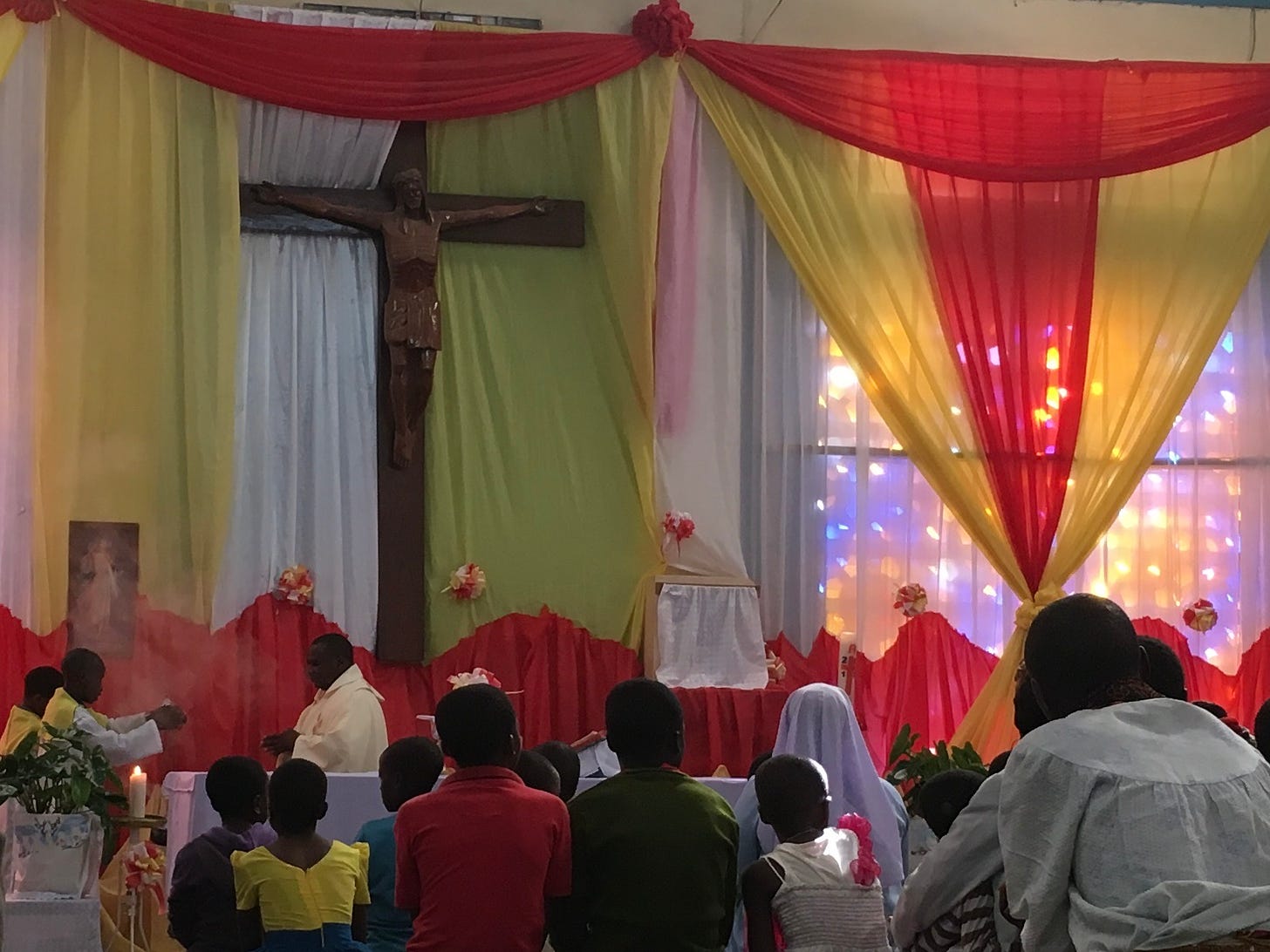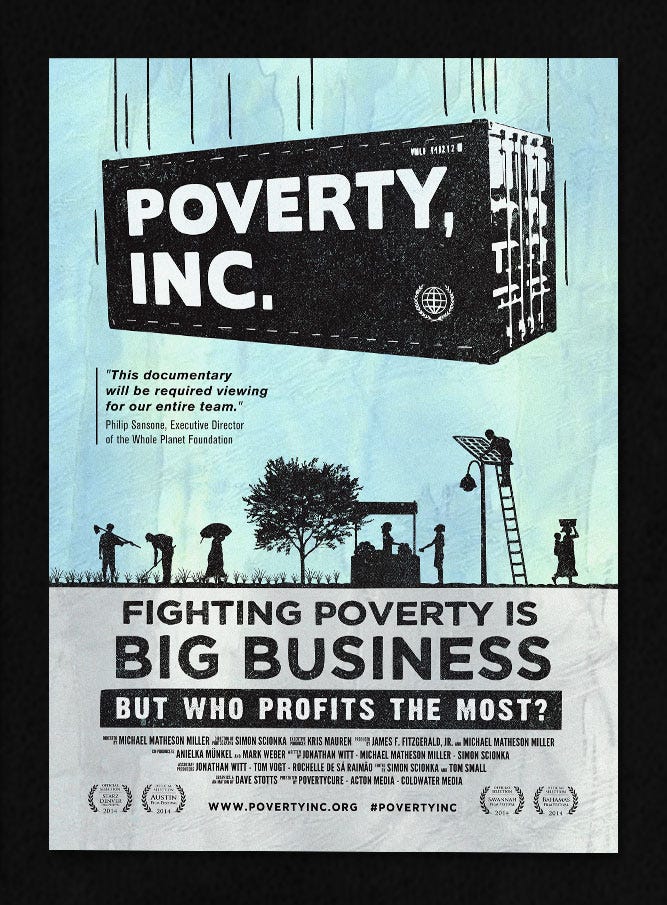Yes, They Know it's Christmas
Manage episode 457311686 series 3581187
This year British radio and the BBC are celebrating the 40th anniversary of Bob Geldof and Band Aid’s Christmas Song to raise money for the Ethiopian famine. The anniversary has created some stir among the British pop celebrity class. British-Ghanian rapper Fuse ODG and others have critiqued the song as demeaning and ultimately harmful for Africa.
And there won't be snow in Africa this Christmas time
The greatest gift they'll get this year is life
Where nothing ever grows, no rain nor rivers flow
Do they know it's Christmas time at all?
Others defended the song and accused the Ghanian rapper for being ungrateful. How could you possible critique a celebrity for such goodwill?
The Critique is not about the Goodwill
Good will is important. I believe that Bob Geldof, who wrote the song and organized Band Aid, did it with the intention to help others. For a rock star celebrity he sure could do a lot worse. But the defense of Geldof and “Do They Know it’s Christmas” is missing the point of the critique. As explains in our film, Poverty, Inc.
The Christmas song raised awareness and it was in response to a particular crisis, I understand that. But it also perpetuates a false image of Africa as barren and a sentimental image of Africans as helpless and dependent.
The problem with songs like “Do They Know it’s Christmas” and “We are the World” is not only that the create a reductionist vision of Africa, but they fuel public support and sympathy for the poverty industry, and the idea that if we could just transfer large amounts of aid and charity to Africa, we can end poverty. So when someone like Magatte critiques foreign aid, the immediate assumption is that they are selfish, uncaring. The sentiment overwhelms the possibility of rational discussion.
Benedict XVI summarizes the problem:
Without truth, charity degenerates into sentimentality. Love becomes an empty shell, to be filled in an arbitrary way. In a culture without truth, this is the fatal risk facing love. It falls prey to contingent subjective emotions and opinions, the word 'love' is abused and distorted, to the point where it comes to mean the opposite.
These songs evoke strong feelings, and while they can rouse people to action and think outside themselves, they also can amplify the tendency of seeing poor people as objects of our charity, compassion and pity, instead of seeing people as subjects, and the protagonists of their own story of development.
The music and images provide an emotional backdrop to humanitarianism. Humanitarianism stops at providing comfort, but fails to address the problems of chronic poverty and exclusion from the institutions of justice like clear title to land and ability to participate in the formal economy. In fact, foreign aid and the poverty industry often creates incentives for local government not to build these institutions of justice.
They also create resentment. It was revealing that people were actually mad at an African rapper for pointing out the silliness and condescending nature of the song. Celebrities regularly scold people about bigotry and tolerance, but when it comes to their short-sightedness, they become defensive….”Can’t you see we are just trying to help?”
Yes, but sometimes “help” hurts and sometimes it causes injustice. As we explain in Poverty, Inc, the dominant model of humanitarianism undergirded by foreign aid has “delayed the development of business in Africa, and kept Africa behind.”
Aid often subsidizes dictators and unjust regimes. If a leader is receiving aid from foreign countries, they don’t need to worry about creating a commercial society with a strong tax base to build roads and other infrastructure projects.
Aid politicizes development and encourages crony capitalism. When millions and millions of dollars are coming into a poor country (since 1962 the west has sent (not including military aid) over 5 trillion dollars to developing countries) everything begins to revolve around it, and economic development and business becomes connected with political connections.
Aid and charity delays the development of business in Africa. This was a point we made in Poverty, Inc and something that FUSE ODG emphasized. If we think of Africans as poor helpless people who need our help, then we don’t think about them as potential business partners.
But as the late Ghanian entrepreneur Herman Chinery-Hesse said in Poverty, Inc,
I have never heard of a country that developed on aid, if you know of one let just me know. I know of countries that developed on trade, and innovation, and business.
Africa has an Ancient Christian Culture
Finally, beyond portraying Africa as a land without rivers, there is also the irony of Western, secularized pop stars asking whether Africans know it’s Christmas.
Not only is Christianity a force throughout Africa.
Not only is the Catholic Church flourishing and African priests and bishops doing essential work to uphold ancient Christian teaching, often against Western capitulation.
Not only are African priests all over the west filling in for the lack of vocations in Europe and America.
Perhaps the greatest irony is that the song was about Ethiopia - an ancient Christian church that celebrated Christmas centuries before Christianity came England.
It is good to want to help. And when an emergency comes using pop music to raise awareness and money is not bad, but charity requires that we think beyond the immediate emotion and make sure that our help is not creating harm.
Forty years ago, before globalization, young celebrities getting together promoting stereotypes about Africa is understandable. They didn’t know much. But they are older now, and as Magatte Wade notes, “by now, Bono should know better”
4 епізоди






